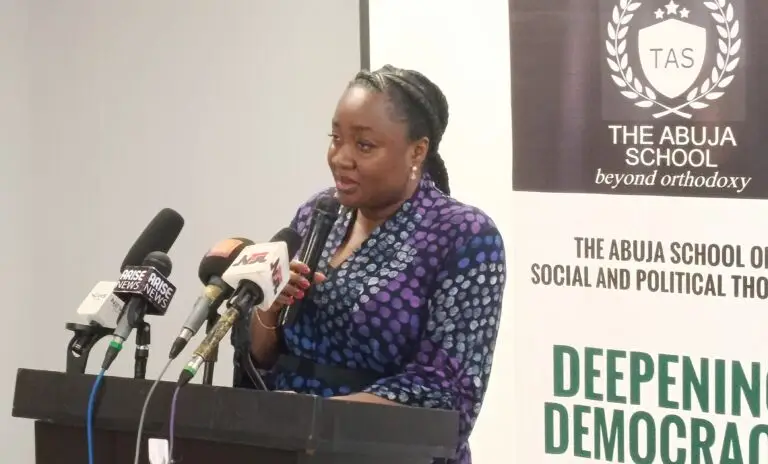News Investigators/ Former President Goodluck Jonathan says Nigeria needs an independent office of the Registrar of Political Parties to tackle what he tagged, “growing crisis of political party indiscipline.”
Jonathan made the recommendation at the public presentation of the National Action Plan for Electoral Reforms, organised by the Abuja School of Social and Political Thought, on Wednesday in Abuja.
Jonathan was represented by Ms. Ann Iyonu, the Executive Director, Goodluck Jonathan Foundation.
He said while Nigeria had made notable progress since its return to democratic rule since 1999, the country’s electoral system still faces significant challenges.
Jonathan said that if Nigeria is truly committed to democracy, the citizens must be bold enough to reform the process to reflect the will of the people and the principles of justice, accountability, and inclusion.
Highlighting the ideas he believed would help deepen our democratic processes and safeguard the legitimacy of our elections, Jonathan said that Nigeria must address the growing crisis of political party indiscipline.
He said that political parties, which should serve as the foundation of democracy, had become vulnerable to instability and opportunism.
“We have seen a disturbing rise in the practice of cross-carpeting, elected officials defecting from the parties under which they were elected, often without ideological justification or accountability to the electorate.
“To remedy this, we should strongly consider the establishment of an independent office of the registrar of political parties, charged with regulating party operations, promoting internal democracy and enforcing party discipline.
“This is a proposal I had put forward on another occasion, but I believe it is good to re-emphasise it at a forum like this.
“During my assignment as an election observer in the last decade, I have seen this work effectively in some countries including Kenya and Malawi.
“Crucially, the office should have the power to declare the seat of any defector vacant. This reform would affirm the principle that the electoral mandate belongs to the people and not to individual ambition,” Jonathan said.
The former president also proposed a new process for appointing the chairman of the Independent National Commission (INEC), suggesting the creation of an independent screening and nomination mechanism.
Jonathan said that the credibility of elections rested heavily on the neutrality and competence of the INEC.
“So many questions have continued to be raised on the propriety of the process of appointing the INEC chairman.
“Many countries in the course of their democratic journey had found the need to reform the process.
“I believe that Nigeria can also improve the process by establishing an independent screening and nomination mechanism, comprising representatives from the judiciary, civil societies, academia and professional bodies.
“This body would be tasked with vetting and recommending a shortlist of qualified candidates, from which the president may appoint the chairman.
“This reform will reduce perceptions of bias, promote public trust in INEC and enhance the legitimacy of its decisions,” he said.
Jonathan also proposed reforms to conclude all post-election litigations, especially those relating to the final outcomes of elections, before the swearing-in of elected officials.
He said that the current practice of having candidates with unresolved cases assume office, only to be potentially removed later by courts, creates confusion and undermines governance.
“We must adopt a framework that compels the timely resolution of electoral disputes, possibly with specially designated election tribunals and timelines that align with the electoral calendar.
“Justice delayed in elections is justice denied, not just for the candidates, but for the electorate,” Jonathan said.
Jonathan, while commending the Abuja school for its deep commitment to driving conversations around democratic development, thought leadership and institutional reforms in the country, called for more patriotism to strengthen Nigeria’s democracy.
“Let us confront our democratic weaknesses with honesty and reform our system with courage.
“Let us continue to work together to build a Nigeria where elections are credible, leaders are accountable and democracy truly delivers for the people,” Jonathan said.”
NAN
